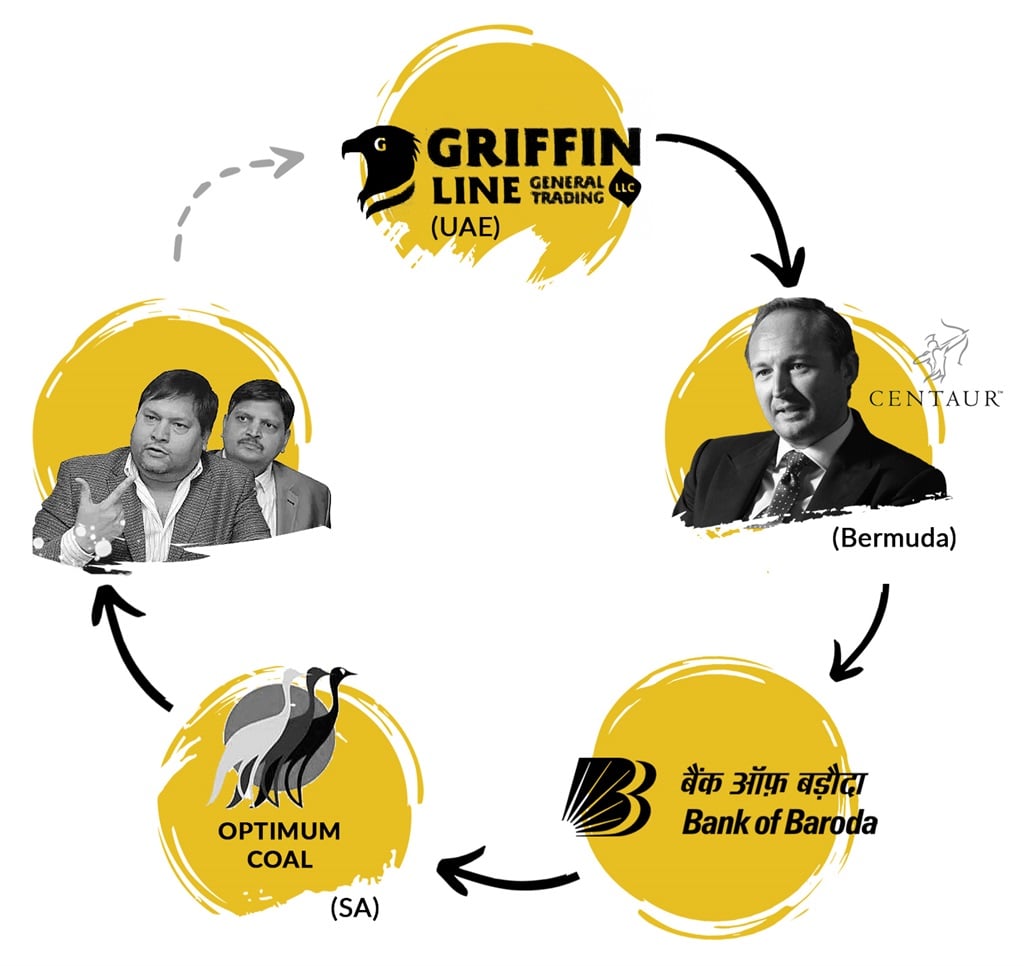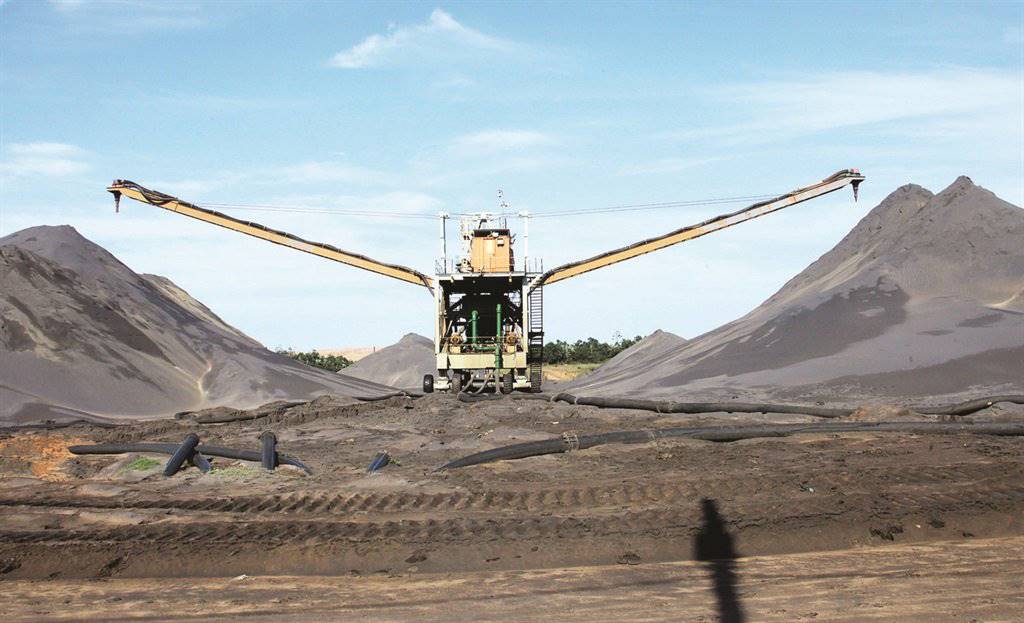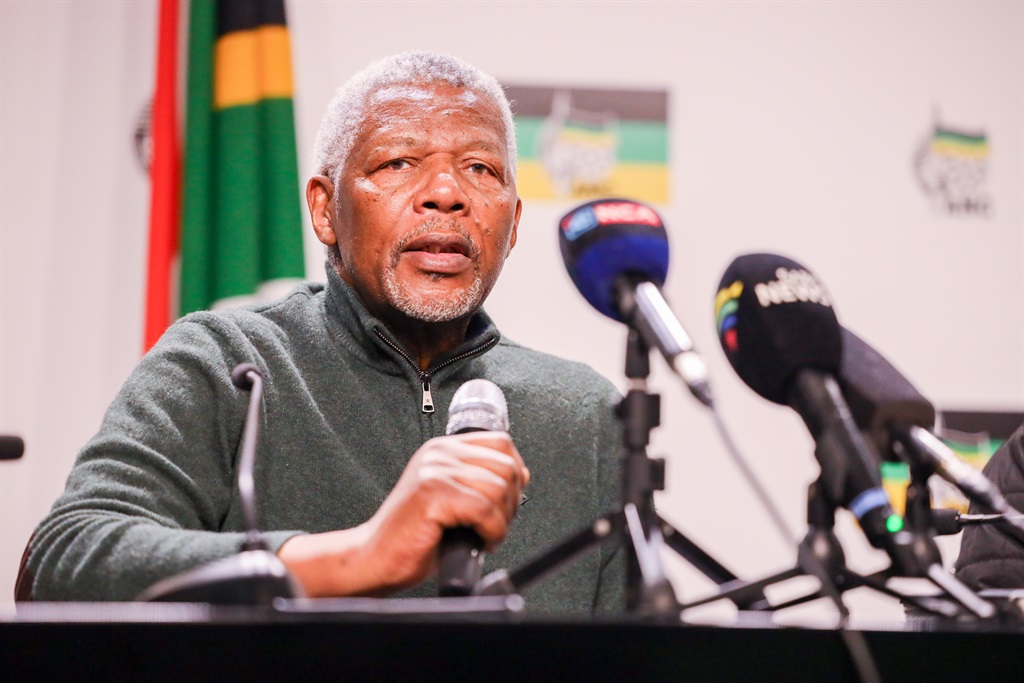The UAE has stymied the National Prosecuting Authority again, forcing it to cut a deal over Optimum as an ex-Gupta crony threatens to pull Gupta grand conspiracy case apart, writes Sam Sole.
The National Director of Public Prosecutions’ (NDPP) settlement with ex-Gupta crony Daniel McGowan will hand him control of Optimum Coal Mine (OCM) and its valuable export arm, Optimum Coal Terminal (OCT) – both in business rescue – without a proper accounting of his role in the Gupta laundromat.
It will also sterilise questions about the origin of his claims as a creditor and his conduct – as well as that of the business rescue practitioners – while the mine has been under their effective control.
It reverses the stance taken by the NPA since it successfully applied to preserve the business – once the jewel in the Guptas’ South African crown – pending its forfeiture to the state as either an instrumentality of a crime or the proceeds of unlawful activity.
Prior to this deal, the NDPP took the view that McGowan was a knowing participant in the laundry of Gupta cash that he should have reasonably suspected was the proceeds of crime.
The NPA also argued that he had suborned the business rescue practitioners (BRPs) and that the mine had been exploited under business rescue to the tune of billions, including to the benefit of companies linked to McGowan.
Both McGowan and the BRPs have always denied these claims, fiercely resisting them in a two-year legal tussle with the NPA.
Now the NDPP’s about-face is an effective admission of the weakness of her case, notwithstanding McGowan’s agreement to forfeit nearly R500 million.
At the heart of that weakness is the failure of the NDPP to secure the timely cooperation of the United Arab Emirates to officially disgorge banking information from the Guptas’ Dubai businesses.
That would have potentially enabled prosecutors to prove the illegal origins of their cash, notably in this case the $100 million they lent to McGowan’s Bermuda registered company, Centaur Ventures Limited (CVL) – a joint venture with their Sun City son-in-law Akash Gargh.
It was ultimately a large portion of this cash that helped the Gupta-owned Tegeta Resources buy Optimum for just over R2 billion back in 2016.
That ‘forced deal’ is a major building block of the NPA’s grand conspiracy case, in which they allege that a range of the Guptas’ friends in government and parastatals pressured Optimum’s previous owners, Glencore, to sell and then diverted cash to the Guptas so they could pay for it.
R842 million of the Optimum purchase price was put up by the Bank of Baroda based on the security of an R886 million fixed deposit that McGowan provided.
That security deposit can be traced back to the $100 million loan facility provided to CVL by the Gupta’s UAE-based company, Griffin Line.
The same Gupta credit line was later used by McGowan to export coal from Optimum via its Richards Bay Coal Terminal allocation held by OCT.
It was “prepayments” on these coal deals that made McGowan one of Optimum’s largest creditors when South African banks dropped Gupta businesses and the Guptas rushed to put Optimum into business rescue in 2018.
The NPA has previously maintained that cash looted from South African entities was effectively round tripped via Dubai and Bermuda and back to Optimum, but they needed access to the UAE records to help prove it.
As head of the Asset Forfeiture Unit Juliana Rabaji-Rasethaba puts it in her affidavit in support of the settlement, “The primary outstanding disputed issue concerns the NDPP allegation that funds originating in the UAE based company, Griffin Line General Trading LLC are, on a balance of probabilities, proceeds of crime.
“In order to prove its case in this regard, the NDPP has, through the appropriate diplomatic channels, made requests for cooperation and mutual assistance from authorities in the United Arab Emirates. The process of obtaining the full necessary cooperation through mutual legal assistance agreements has been slow, and it is by no means certain that the outstanding evidence requested by the NDPP will have been made available before the middle of this year.”
It is understood that the UAE has continued with the stonewalling that stymied South Africa’s efforts to have the Guptas extradited, yet nowhere in her affidavit does Advocate Rabaji-Rasethaba admit or explain the UAE’s seeming dilatoriness.
So now the NDPP has been obliged to exclude R842 million from the amount recoverable from McGowan and Optimum – nearly half the amount that was initially tagged as the proceeds of crime in the Gupta Optimum deal.
But it’s worse than that.
McGowan is a tough nut. He cut the Guptas loose in late 2018 while still owing them a large amount of money, now more than $104 million with interest, and Griffin Line is still litigating against him in Bermuda. McGowan has resisted their demands, ironically partly on the grounds that the cash they advanced to him is now suspected to be the proceeds of crime.
He is evidently hard to intimidate and is skilled at navigating the rocky shoals of corporate and legal accountability. He chooses good lawyers.
At Optimum, McGowan moved from having his claims rejected by the BRPs to making them allies in his bid to convert his claims into a takeover of the companies that would see them exit business rescue and deliver a handsome bonus to the BRPs.
He has also built a relationship with the National Union of Mineworkers, which has consistently backed his legal strategy in the name of saving jobs at the mine.
With the NPA, he moved from offering his cooperation as an innocent victim of Gupta shenanigans to now delivering what amounts to the most effective legal challenge to the State Capture narrative thus far presented to a court.
On 23 March 2022, Gauteng judges Dawie Fourie and Mandla Mbongwe granted two preservation orders under the Prevention of Organised Crime Act (POCA) in favour of the NDPP.
One order preserved the shares in the Optimum mine and terminal; the other preserved McGowan’s creditor claims in the business rescue, held under a company called Templar Capital.
Chapter 6 of POCA allows the NPA, in civil proceedings, to obtain forfeiture orders over property that is the proceeds of unlawful activities, whether or not there are related criminal charges pending.
The NDPP is not required to prove its case beyond a reasonable suspicion at the preservation stage.
Within 90 days of the preservation order, the NDPP is required to bring an application for forfeiture of the preserved property, failing which the preservation order lapses.
The onus is higher at the forfeiture stage. To succeed, the NDPP must prove, on a balance of probabilities, that the property is an instrumentality of an offence or the proceeds of unlawful activity.
McGowan did not waste time on the preservation case, where the bar for the NDPP is low. However, when she proceeded to apply for forfeiture worth around R1.75-billion, he hit back hard with a 338-page affidavit and some 3 500 pages of supporting documentation, including reports from his own expert witnesses to challenge the evidence and logic on which the NDPP relied.
As part of his challenge, McGowan slams her UAE failure again and again, noting that she “has been compelled to concede that she has an ‘absence of admissible evidence relating to the Dirham inflows into Griffin Line…’ and no ‘admissible evidence of the ultimate source and money trail of the Dirham inflows into Griffin Line’.
“In short, she has not shown from whom Griffin Line obtained its funds or that the Griffin Line funds are tainted.”
But he does not stop there.
McGowan attacks the evidentiary basis of both legs of the case, which go to the heart of the substratum of evidence unpinning the key allegations involving the entire Gupta “criminal enterprise”.
These are, he says, “First, a vast conspiracy — which the NDPP says amounts to a pattern of racketeering — involving the Gupta family, Essa, and their associates, to facilitate the Optimum transaction. Second, a money laundering scheme (parts of which apparently remain opaque and untraceable, even to the NDPP, and even at this stage in the proceedings).”
McGowan attacks the NDPP’s reliance on evidence obtained by the Zondo Commission, which he says is inadmissible hearsay in this case, and questions the expertise of Paul Holden, who traced the Gupta money flows for the commission, as well as Sibusiso Tshikovhi, the investigator in the forfeiture case.
“With respect, neither Holden nor Tshikovhi have the requisite experience and expertise to reliably trace the flow of funds. Their assessment, in any event, fails to show that the funds at issue are the proceeds of crime.”
Critically, he argues that the NPA is still seeking international assistance to trace the flow of the funds laundered out of the Hong Kong bank accounts that received the gigantic commission payments made by Chinese manufacturers on the Transnet locomotive deals.
These are suspected of flowing to the Guptas in the UAE. The $100 million of funds that were then transferred to Griffin Line and on-lent to McGowan’s CVL in Bermuda are ostensibly derived from this flow.
McGowan’s criticism is stinging:
The NDPP seeks to cover this crucial lacuna in her case by stating that Griffin Line’s funds ‘needs to be viewed in the context of the broader criminal activities and pattern of racketeering activity of the Gupta enterprise’.
It continues:
“The allegation is of such a sweeping nature that I am unable to provide a response… And save for a one-sided and biased version of purported evidence in support of her case, the NDPP has provided no evidence of any ‘criminal activities’ or ‘pattern of racketeering’. Nor does she explain what is meant by, or identify who is included in, the non-specific phrase ‘the Gupta enterprise’.
“She also refers repeatedly to ‘kickback contracts’ in respect of the Tequesta/Regiments Asia/China locomotive deal… without providing the basis for why monies paid by the Chinese locomotive companies in accordance with legally binding, extant agreements are invalid.
“In the circumstances, the NDPP has not proved that the monies paid by the Chinese locomotive companies were illegal or the proceeds of unlawful activities; or, if they are, that any of those monies were paid to Griffin Line; or, if they were, that any of those same monies made their way to CVL. The NDPP may have a hypothesis on what she believes may have taken place but this hypothesis, on the NDPP’s own version, is based on unsubstantiated inference alone, not admissible evidence. She relies, impermissibly, on the notoriety of the Guptas as a basis for the sweeping nature of her accusations of alleged corrupt activities.”
McGowan is able to get away with this outrageous chutzpah not only because the NDPP and the South African government have failed dismally in obtaining UAE and Chinese cooperation, but crucially because the NPA has resisted up to now making the necessary effort to have the #GuptaLeaks – from which much of Zondo’s evidence was drawn – analysed by its own experts and admitted in court.
Even here, McGowan’s affidavit delivers a masterclass in semi-plausible deniability.
For every case in which his fingerprints can be found on the Guptas’ machinations – from buying Duduzane Zuma a flat in Dubai to trying to help them to set up a bank – McGowan is all injured innocence.
Given his robust response, it is unsurprising that the NDPP wants to present this settlement as a great win.
It is in fact a brilliant rescue, in the face of the self-created risk that if she went to trial, she could obtain an adverse finding on the very fabric of her State Capture cases – even at the level of a balance of probabilities, not the tougher standard of beyond reasonable doubt that she faces in criminal cases.
Much is made in the submissions supporting the settlement of the need to preserve the deteriorating mine and its jobs.
In his heads of argument, the NDPP’s counsel states, “The very survival of the main preserved property (being the business of OCM) is at stake. Due to external factors, even under curatorship, the value of the preserved property has dissipated and will likely diminish beyond the point of viable recoupment in due course.”
But what the settlement glosses over is troubling.
When the NDPP obtained her preservation order, Optimum was already under business rescue and had in fact already approved the rescue plan put forward by McGowan.
The rescue practitioners were, in terms of company law, already in charge when the NDPP, by order of the court, installed a curator alongside them with the duty and legal authority to preserve Optimum’s assets.
The first curator, Peter van den Steen, repeatedly alleged to the court that the BRPs were obstructive,that they were dissipating the assets of the mine by allowing third-party mining, dubbed the “mini-pit contracts”, which did not deliver fair benefit to the mine,and were being allowed to make use of Optimum’s Richards Bay Coal Terminal (RBTC) export allocation.
Van den Steen also disclosed that the BRPs had concluded an allegedly irregular fee agreement with McGowan.
When van den Steen threatened to shut down the mini-pit contracts, he received death threats and resigned.
The same counsel had this to say on behalf of the NDPP less than a year ago when resisting an urgent application by the BRPs to force RBCT to lift the suspension of Optimum’s export access RBCT had imposed:
“Despite the fact that the High Court has now made findings [in the preservation orders] that have the logical corollary that implementation of the business rescue plans amounts to a money laundering offence, the Business Rescue Practitioners remain absolutely committed to implementing these plans…
“They have also repeatedly frustrated the attempts by the Curator Bonis appointed under the preservation orders, to protect the value of the business of OCM from dissipation.
“The preservation orders contemplated that the business rescue practitioners of OCM would cooperate with the Curator. However, this has not been the case.
“Instead, the business rescue practitioners have failed to implement most of the Curator’s recommendations and seem to have frustrated him at every turn.
“Of direct relevance to the present case are the findings… of the Curator relating to the mini-pit contracts concluded by the business rescue practitioners and the dissipation of value from OCM through these contracts…
“That mining is being conducted, not for the benefit of OCM (which receives a flat rate royalty per ton that bears no relationship to the value of the coal mined) but rather for the benefit of the mini-pit contractors with whom the Business Rescue Practitioners have contracted.
“In his fourth report, the Curator concludes with detailed motivation that, on a conservative estimate, over the period March to September 2022, an aggregate amount of R6.3 billion was dissipated from OCM through the mini-pit contracts.
“This value (which was dissipated only in a seven-month period from March to September 2022) would have been sufficient to pay the full claims of all business rescue creditors of OCM and to take the mine out of business rescue.”
The NDPP’s argument pointed out that McGowan’s own company, Liberty Coal, was one of the mini-pit contractors benefiting to the tune of hundreds of millions per month at the expense of OCM.
“Shortly after the Curator indicated his intention to terminate the mini-pit contracts unless they were restructured, he started to receive death threats. The first of these death threats was sent by WhatsApp on 12 December 2022. Following receipt of further death threats, the Curator gave notice to the NPA that he intended to resign his appointment.”
Although the BRPs expressed horror at the death threats and took issue with van den Steen’s calculations, the questions about what took place under the hood of business rescue have never been resolved.
Now it is unlikely they ever will be.
News24 encourages freedom of speech and the expression of diverse views. The views of columnists published on News24 are therefore their own and do not necessarily represent the views of News24.







Recent Comments